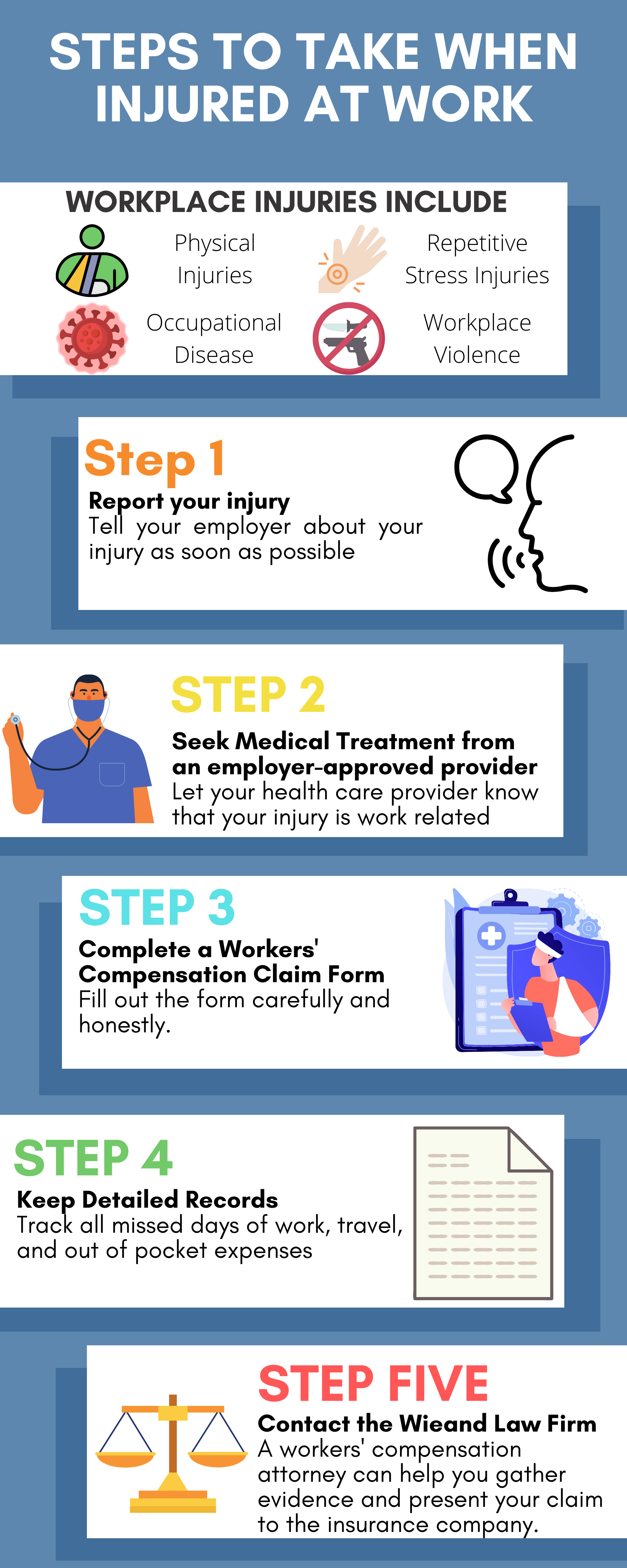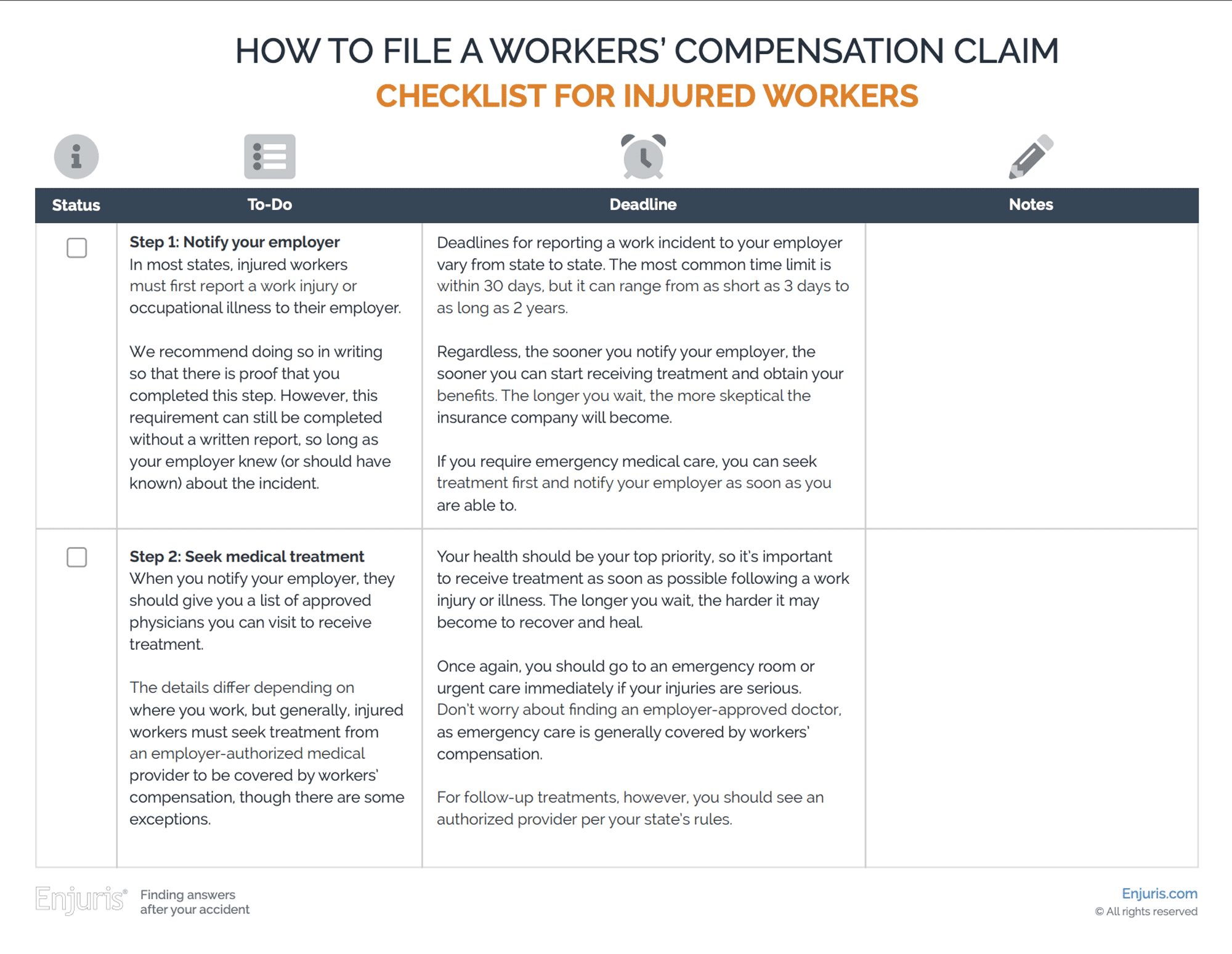All Categories
Featured
Table of Contents
- – Lawyer Work Compensation Lakewood, CA
- – Visionary Law Group
- – Attorneys For Workers Compensation Lakewood, CA
- – Attorney Workmans Compensation Lakewood, CA
- – Workman Comp Lawyers Lakewood, CA
- – Lawyer Work Compensation Lakewood, CA
- – Lawyer For Workmans Comp Lakewood, CA
- – Lawyer Workers Comp Lakewood, CA
- – Attorney Workmans Compensation Lakewood, CA
- – Work Injury Attorneys Lakewood, CA
- – Visionary Law Group
Lawyer Work Compensation Lakewood, CA
The U.S. Department of Labor's Office of Employees' Compensation Programs (OWCP) provides four significant special needs compensation programs which gives to federal employees (or their dependents) and other specific groups who are injured at the workplace or acquire a work-related illness offering the injured: Wage substitute benefits Clinical therapy Occupation recovery Various other benefits Other specific teams are covered by: These entities serve the specific employee groups who are covered under the pertinent laws and policies by alleviating the monetary concern arising from workplace injury.
The Department of Labor has a number of programs developed to stop occupational injuries and health problems. You may get details concerning these programs by visiting our Workplace Safety and Health web page.

Workers' payment, also called "workers' compensation," gives advantages to workers who end up being hurt or ill at work as a result of an occupational crash. Workers' compensation covers clinical expenses, medical care advantages, income for lost earnings, instructional retraining, and disability pay. Workers' settlement is a state government-mandated program, however the called for advantages differ from state to state.
Attorneys For Workers Compensation Lakewood, CA
Federal workers' compensation programs also exist, covering government and energy staff members, in addition to longshore and harbor workers. An additional government program, the Black Lung Program, handles death and impairment benefits for coal miners and their dependents. Employers can not require employees to spend for the cost of employees' settlement. Requirements for employees' compensation vary from one state to another, and some states do not cover all workers.
, whether partial or complete impairment. Workers' payment benefits are not typically taxable at the state or government degree, compensating for much of the lost revenue.
Attorney Workmans Compensation Lakewood, CA
For example, a construction employee might assert compensation for an injury endured in a loss from scaffolding yet except an injury sustained while driving to the task website. In other circumstances, workers can receive the matching of ill pay while on clinical leave. If a worker passes away because of a job-related incident, the worker's dependents receive the employees' payment repayments.
This giving in assists protect both the workers and employers. Employees surrender better option for assured compensation, while employers consent to a degree of responsibility while avoiding the potentially better price of a carelessness claim. A company may dispute a workers' settlement insurance claim considering that conflicts can emerge over whether the company is responsible for an injury or health problem.
Workman Comp Lawyers Lakewood, CA
Employees' settlement payments are at risk to insurance coverage fraudulence. An employee may falsely report that their injury was endured at work, exaggerate the severity of an injury, or develop an injury. The National Insurance coverage Crime Board asserts that there are "arranged criminal conspiracies of crooked doctors, attorneys, and individuals" that send false claims to clinical insurer for workers' settlement and other advantages.
That was just one of the main factors of opinion in the discussion over a The golden state ballot measure that sought to prolong fringe benefit to vehicle drivers for ride-sharing applications like Uber and Lyft. Like the so-called gig economic situation, the problem of employees' payment and other benefits for agreement workers isn't vanishing considering that gig workers have increased from 2012 to 2021 by virtually 5 million and stand for 3% of the labor force.
In the U.S., individual states handle employees' payment guidelines. Still, it is liable only for covering government employees, longshoremen and nurture workers, energy staff members, and coal miners. The absence of federal requirements for employees' payment has resulted in extremely diverse policies for the same kinds of injuries from state to state.
Lawyer Work Compensation Lakewood, CA
Low-wage and immigrant workers typically do not even use for benefits. There are two types of employees' payment insurance coverage: Protection A and Protection B.

To put it simply, there is no payroll deduction like there is with Social Safety and security advantages. The company needs to pay employees' settlement advantages as developed by individual state regulations. The price of workers' settlement insurance averages $45 monthly yet varies by state, as do the mandated benefits. There also are various rates depending on whether the staff members covered are carrying out low-risk or risky work.
Lawyer For Workmans Comp Lakewood, CA
If your claim is denied, you can appeal the decision with your state's Workers' Payment Board. Typically, only workers are eligible for employees' settlement; professionals and consultants are not.
Louisiana excludes artists and crop-dusting aircraft crew participants. Every state (except Texas) requires companies to provide workers' settlement coverage to a minimum of several of their staff members. The states write the guidelines, so there are several exceptions and exemptions. Specialists and consultants are hardly ever covered, and lots of states leave out specific occupations from the required or otherwise limit the range of the advantages.
Lawyer Workers Comp Lakewood, CA
Last upgraded on June 17, 2024 According to Illinois law, employers must compensate injured employees for job-related injuries. Worker S Compensation Attorneys Lakewood. Workers might be injured by office equipment or come down with risks postured by their responsibilities. As an example, vehicle crashes at work remain a leading root cause of work environment injuries and casualties.
This system of regulations is created to protect and compensate employees who are hurt while acting within the range of their work. Benefits available under the Illinois Workers' Payment Act include healthcare, impairment repayments, and survivor benefit. Relying on the severity of the employee's injuries, they may be qualified to short-term complete special needs benefits, long-term total impairment advantages, or partial special needs benefits.
Attorney Workmans Compensation Lakewood, CA
An employee that was associated with an auto crash would certainly aim to reveal that they were acting in the course and scope of employment at the time of the crash. Often times, a company or its insurance policy carrier will certainly dispute the connection in between the injury and the occupational obligations - Worker S Compensation Attorneys Lakewood. It is the burden of the employees' settlement plaintiff to show that at the time of the car collision, they were taken part in an occupational job
Furthermore, companies that hire distribution motorists may be deemed in charge of compensating those vehicle drivers for on-the-job car mishaps. Workers' compensation also covers workers who remain in a crash while driving a firm automobile. It is essential to note that workers' payment is a no-fault system. This implies that an employee who may be at fault for triggering a mishap will certainly still have the ability to recoup advantages under the Illinois Workers' Settlement Act.
Work Injury Attorneys Lakewood, CA
Visionary Law Group
Address: 100 W Broadway Suite #3000 Long Beach, CA 90802Phone: (562) 549-5655
Visionary Law Group
Workers who are dedicating a criminal act at the time of the car crash will not be able to protect benefits. An employer's employees' settlement carrier will likely deny protection for expenses connected with injuries sustained in a crash while dedicating a criminal activity. One more exception to coverage exists for employees who are commuting to work yet have actually not yet started working.
Lawyer For Workmans Comp Lakewood, CAWork Injury Lawyers Lakewood, CA
Workmens Comp Lawyer Lakewood, CA
Attorneys For Workers Compensation Lakewood, CA
Workman Compensation Attorneys Lakewood, CA
Workers Compensation Injury Lawyer Lakewood, CA
Worker S Compensation Lawyers Lakewood, CA
Workers Compensation Injury Lawyer Lakewood, CA
Lawyer Work Compensation Lakewood, CA
Accident Work Compensation Lakewood, CA
Lawyer Work Compensation Lakewood, CA
Lawyers Workers Comp Lakewood, CA
Lawyer Work Compensation Lakewood, CA
How To Win A Workmans Comp Case Lakewood, CA
Work Injury Attorneys Lakewood, CA
Accident Work Compensation Lakewood, CA
Work Labor Lawyer Lakewood, CA
Worker S Compensation Attorneys Lakewood, CA
Worker S Comp Lawyers Lakewood, CA
Lawyer For Workmans Comp Lakewood, CA
Work Related Accident Lawyers Lakewood, CA
Lawyer For Workmans Comp Lakewood, CA
Attorney Workmans Compensation Lakewood, CA
Workman Comp Lawyers Lakewood, CA
Workers Compensation Injury Lawyer Lakewood, CA
Lawyer Workers Comp Lakewood, CA
Worker S Compensation Lawyers Lakewood, CA
Worker S Comp Lawyers Lakewood, CA
Lawyers Workers Comp Lakewood, CA
Lawyers For Workers Comp Lakewood, CA
Attorneys For Workers Compensation Lakewood, CA
Workers Compensation Injury Lawyer Lakewood, CA
Attorney Workmans Comp Lakewood, CA
Work Injury Lawyers Lakewood, CA
Workman Comp Lawyers Lakewood, CA
How To Win A Workmans Comp Case Lakewood, CA
Worker S Compensation Attorneys Lakewood, CA
Lawyers Workers Comp Lakewood, CA
Workman Compensation Attorneys Lakewood, CA
Worker S Compensation Lawyers Lakewood, CA
Worker S Comp Lawyers Lakewood, CA
Attorney For Workers Comp Lakewood, CA
Workmens Comp Lawyer Lakewood, CA
Attorney For Workers Comp Lakewood, CA
Attorney Work Compensation Lakewood, CA
Workmens Comp Lawyer Lakewood, CA
Attorneys For Workers Compensation Lakewood, CA
Lawyer For Workmans Comp Lakewood, CA
Worker Injury Lawyer Lakewood, CA
Los Angeles Workers Compensation Law Firms Lakewood, CA
Attorney Work Compensation Lakewood, CA
Attorney Workmans Comp Lakewood, CA
Workmens Comp Lawyers Lakewood, CA
Work Injury Attorney Lakewood, CA
Worker S Comp Lawyers Lakewood, CA
Lawyer Workers Comp Lakewood, CA
Worker Injury Lawyer Lakewood, CA
Workers Compensation Injury Lawyer Lakewood, CA
Work Injury Lawyers Lakewood, CA
Worker S Comp Lawyers Lakewood, CA
Lawyers Workers Compensation Law Lakewood, CA
Lawyers Workers Compensation Law Lakewood, CA
Workman Comp Lawyers Lakewood, CA
Workman Comp Lawyers Lakewood, CA
Worker S Compensation Lawyers Lakewood, CA
Work Related Accident Lawyers Lakewood, CA
Lawyer Workmans Compensation Lakewood, CA
Worker Injury Lawyer Lakewood, CA
Lawyer Workers Comp Lakewood, CA
Workman Compensation Attorneys Lakewood, CA
Lawyer Work Compensation Lakewood, CA
Workmens Comp Lawyer Lakewood, CA
Lawyers For Workers Comp Lakewood, CA
Lawyer For Workmans Comp Lakewood, CA
Attorney Workmans Compensation Lakewood, CA
Accidents At Work Claims Lakewood, CA
Work Labor Lawyer Lakewood, CA
Finding A Local Seo Expert Lakewood, CA
Finding A Good Local Seo Services Near Me Lakewood, CA
Visionary Law Group
Table of Contents
- – Lawyer Work Compensation Lakewood, CA
- – Visionary Law Group
- – Attorneys For Workers Compensation Lakewood, CA
- – Attorney Workmans Compensation Lakewood, CA
- – Workman Comp Lawyers Lakewood, CA
- – Lawyer Work Compensation Lakewood, CA
- – Lawyer For Workmans Comp Lakewood, CA
- – Lawyer Workers Comp Lakewood, CA
- – Attorney Workmans Compensation Lakewood, CA
- – Work Injury Attorneys Lakewood, CA
- – Visionary Law Group
Latest Posts
Best Auto Accident Attorneys Los Angeles
Glendale Auto Accident Attorneys
Valley Glen Workers Compensation Injury Lawyer
More
Latest Posts
Best Auto Accident Attorneys Los Angeles
Glendale Auto Accident Attorneys
Valley Glen Workers Compensation Injury Lawyer